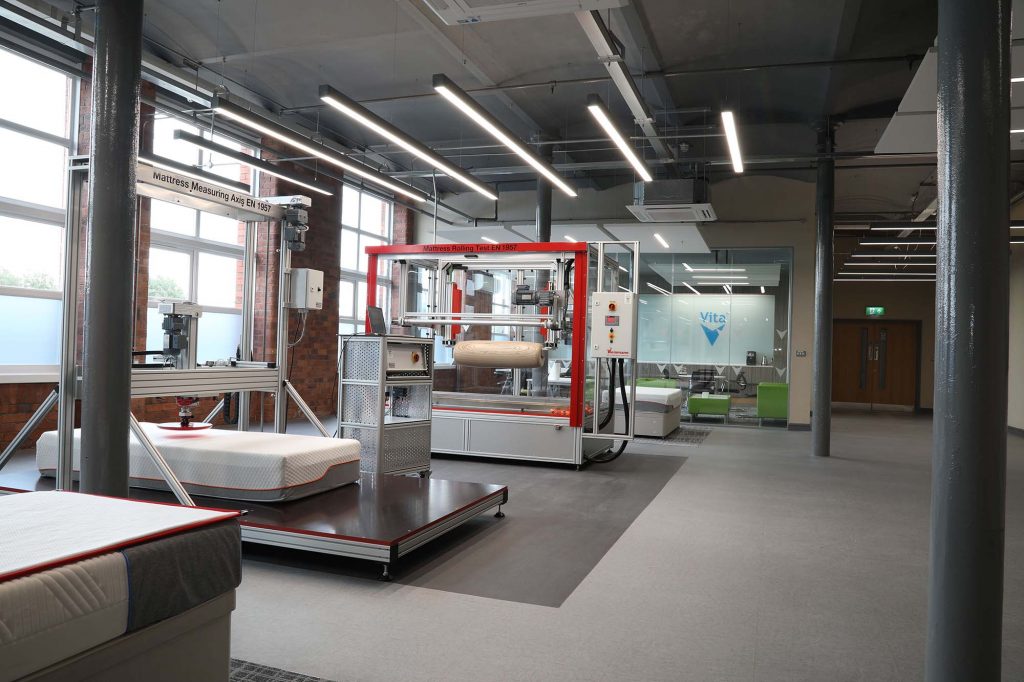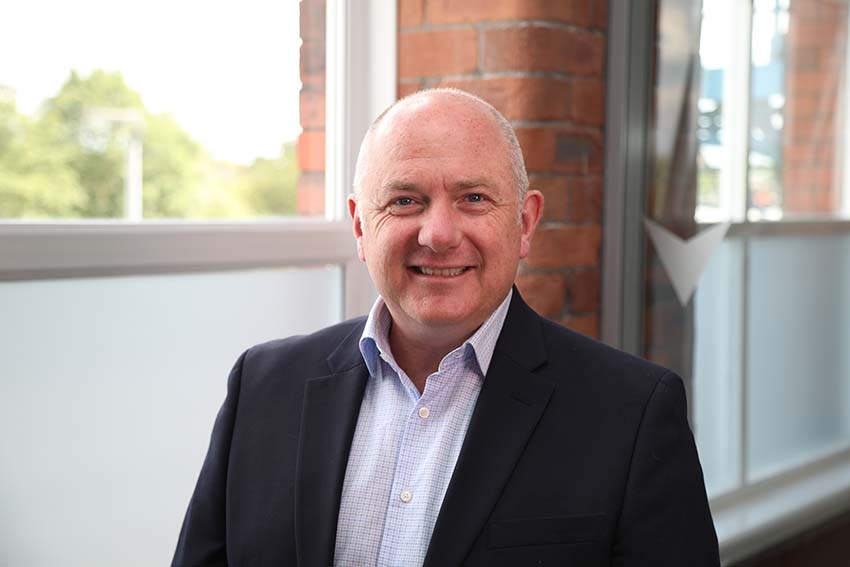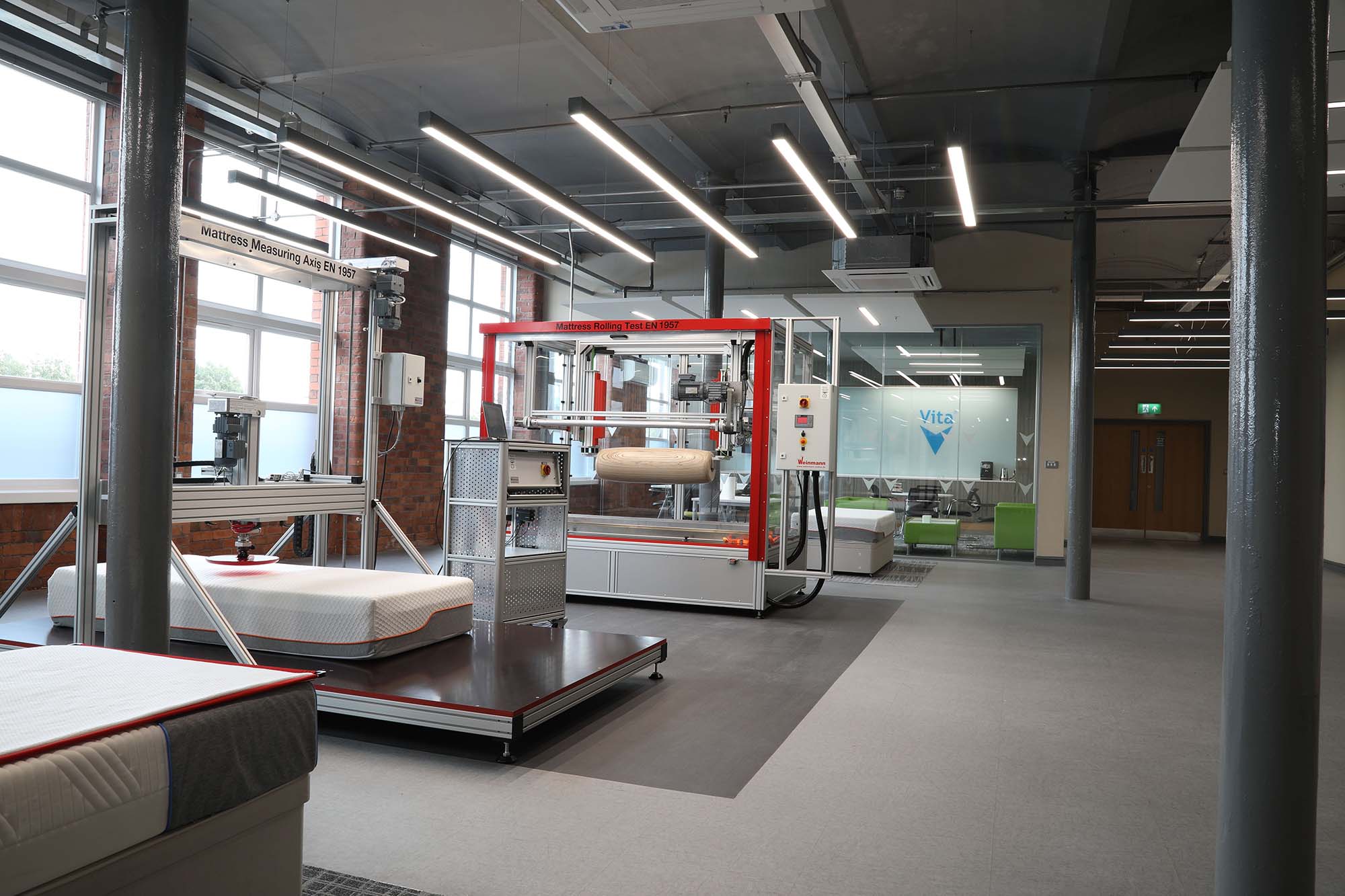The Vita Group is one of Europe’s leading flexible PU foam solutions providers. Vita develops, manufactures, and markets a wide range of value-added and differentiated flexible polyurethane foam, Talalay latex and flooring products to create comfort, quality and functional solutions for customers. For over 70 years Vita has led the pursuit of innovative, sustainable products.
The Vita Group caters for customers across a broad set of industries. The company’s pan-European operating base is well positioned to serve local, regional, and multi-national customers across Europe and provide innovative and value-added products and applications worldwide.
Interview with Mike Murray, Chief Technology Officer at The Vita Group.
Easy Engineering: What are the main areas of activity of the company?
Mike Murray: Vita has two divisions – Comfort, and Technical & Flooring – which cater for customers across a broad set of industries, including Bed-in-a-Box, mattresses and bedding, furniture, hygiene and medical, mobility, automotive, construction, and flooring, amongst others.
The Vita Group is proud to sit at the vanguard of innovation and sustainability and has been working to improve its sustainable practices for over 50 years. Its innovation teams, from across its four dedicated Innovation Centres, work with academic, supply chain and customer partners to ensure it remains at the cutting edge of development. 2022 saw the launch of its first sustainability report; “Enhancing Everyday Life’, which outlined its position and road map for achieving its sustainable goals.
Vita has signed with the UN (United Nations) Global Compact and Race to Zero initiative and is proud to be the first flexible PU foam manufacturer globally to have verified Science Based Targets by the SBTi (Science Based Targets initiative). The company has also been awarded a Gold sustainability rating from EcoVadis, the world’s most trusted provider of business sustainability ratings, which ranks Vita in the top 3% of assessed organisations worldwide.
E.E: What’s the news about new products?
M.M: The Vita Group views improving its environmental performance as both a moral and a business imperative. Its environmental advances are best exemplified by its range of sustainability products. At this year’s Interzum awards Vita won four awards for its Orbis range in recognition of its market leading sustainable foam technologies.

The VitaFirst mattress, awarded the highly prestigious “Best of the Best” prize by the judges, incorporates an innovative mattress design made from 100% of Vita’s sustainable technology. It comprises two sustainable foam products, Orbis Plus Mass Balance (MB) – Mass Balance (MB) is the certified methodology to bring more sustainable raw materials into production chains – and Novus, a reconstituted foam.
Sustainability is at the heart of the design of this mattress, by combining Vita’s latest foam technology, using zero adhesive for easier end-of-life recycling and by covering the finished product with a Global Recycled Standard (GRS) sustainable cover.
Novus is constructed through a process of bonding granulated post-industrial trim that is reintroduced into the production cycle. Vita First mattress uses a new Novus grade with only 40 Kg/m3 density for lightweight construction.
Three other Vita products – Orbis Plus, Orbis Plus MB and Orbis NEXT MB – were all awarded the High Product Quality award. These products are the latest iterations of Orbis, which won the ‘Best of the Best’ Award at Interzum in 2021. Orbis foam from The Vita Group was Europe’s first flexible polyurethane (PU) foam made with raw materials sourced from recycled post-consumer foam mattresses.
The Vita Group partnered with Dow in the RENUVA™ Mattress Recycling Program and through this collaboration has produced flexible PU foams made with RENUVA™ polyols – a raw material created from recycled mattress content.
E.E: What are the ranges of products?
M.M: The Orbis foam range is named after the Latin for globe or circular, as this is a truly circular initiative without compromise on comfort. The Vita Group is producing Orbis foam made with RENUVA™ polyols at its ICOA facility in Crancey, France. This program aims to recycle up to 200,000 mattresses a year, while the foams produced from this ‘re-polyol’ have similar properties to those based on ‘virgin’ raw materials and can be used in all the same applications. This means brand new mattresses can be made from recycled mattress foams.
The flexible PU foam industry has been adding renewable polyols in low additions (typically between 5 and 12%), over many years. The Vita Group’s continued investment in Innovation Centres and a pilot plant has allowed it to further push the boundaries of sustainable flexible PU foam development.
The Orbis range is a fundamental step change, containing up to 100% recycled and renewable polyol. Vita’s unique formula uses a variable combination of bio-based polyol, and RENUVA ™ recycled polyol totalling up to 100% of sustainable polyol content.
Products in the range include:
Orbis Plus a sustainable, flexible polyurethane foam
Orbis Plus MB is made in partnership with Covestro, it relies on Vita’s unique formula which uses a variable combination of bio-based polyol and recycled polyol to produce sustainable foam containing up to 100% sustainable polyol.
Orbis Next MB is a concept foam that is currently being developed, with the hopes it will become a commercially available product. The innovative repolyol recycling technology is being developed at pilot plant scale by Evonik. Evonik’s new hydrolysis technology facilitates the recovery of higher amounts of recycled polyol. This is the first time that this exciting, new technology has been incorporated into a product and represents a world-first foam, which combines mass balance TDI with 100% recycled polyol.
Vita First is an innovative mattress design made from 100% of Vita’s sustainable technology. It comprises two sustainable foam products, Orbis Plus MB and Novus, a reconstituted foam.
E.E: What can you tell us about market trends?
M.M: The market will continue to be driven by sustainable innovations. At The Vita Group, we see our role as a leader of transformation and an enabler of the circular economy. 100% of our new product development now has a sustainable solution built in.

Historically, the perception of foam is that it has been made from fossil fuel derivatives and is petrochemical, but that is no longer the case. The R&D that has gone into the industry over the last decades has enabled foam to be at the forefront of the circular economy. It can be recycled into rebond and repurposed, and at the end of life can be chemically recycled to make new products.
As the market continues to develop more sustainable materials it won’t be the case that consumers choose to purchase a sustainable product – it will be the only option available. The problem is that, while we are already going further than we ever thought we could, many of the technologies to make this possible are still in development. This is why Vita has a real focus on working collaboratively to bring the best available technology to market. We place enormous value on our partnerships with the likes of Evonik and Dow and working with leading universities such as The University of Manchester and The University of Sheffield to give us the ability to lead sustainable change.
E.E: What estimations do you have for 2023?
M.M: The Vita Group substantiates all claims with scientific techniques. Last year, it became the first flexible polyurethane manufacturer to have validated science-based targets in accordance with the SBTi. This is a rigorous and high standard measurement which tracks its sustainability efforts to put data behind its innovations and improvements.
This type of robust measurement will become much more frequent over the next 12 months as new legislation is expected that could see companies fined millions of pounds for making unproven environmental assertions to sell their products.
Under the digital markets, competition and consumer bill, big companies will face the threat of civil penalties of up to 10% of global turnover for breaches of consumer law. Individuals who breach these laws will face fines of up to £300,000. The UK government has said passing the new bill is a priority, which means companies will have to get ready to back up any sustainability claims they make with clear evidence.

